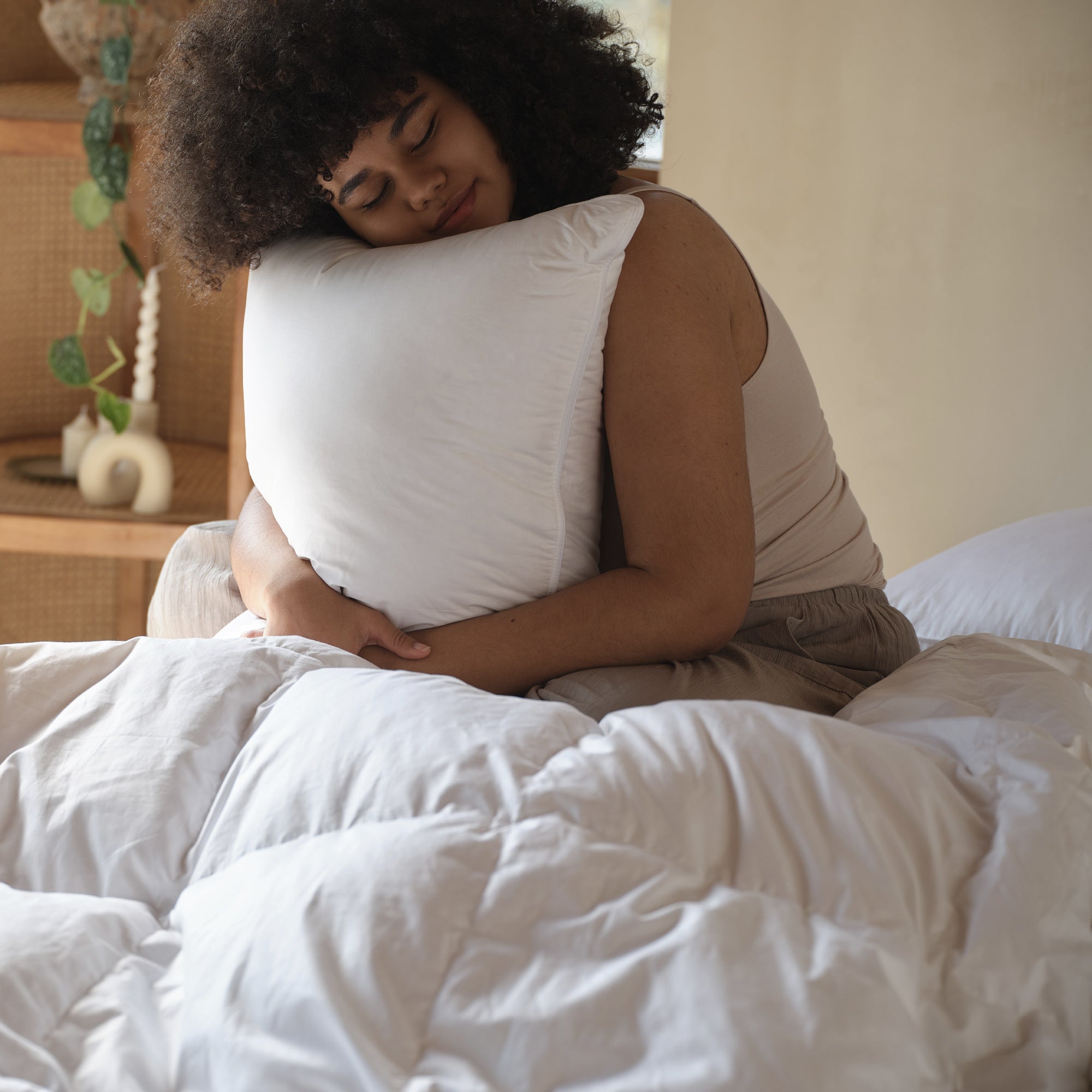The Importance of Sleep, Common Disruptors, and Effective Techniques for Quality Rest
Is there anything worse than trying to get through the day when you want nothing more than to lay back and close your eyes for a few minutes (or hours)?
At Double Stitch, we understand that quality sleep is essential for a healthy life, and that's why we’re dedicated to making sure you get good rest. Today, we’re sharing why quality sleep is so important and exploring the factors that often prevent it.
We'll also share some fantastic science-backed techniques and tips to help you achieve better sleep, so you can wake up refreshed and ready to conquer the day.
The Importance of Quality Sleep
Sleep is not a luxury—it's a fundamental human need. But in today's fast-paced world, it's easy to underestimate the importance of getting enough quality sleep each night. The truth is, good sleep plays a crucial role in your physical and mental health. Here's why it matters:
- Physical Health
Quality sleep is essential for the body to repair itself. During deep sleep stages, tissues and muscles are repaired, and the immune system is strengthened. This means that consistent, high-quality sleep can help prevent illnesses and speed up recovery from injuries.
- Mental Health
Sleep has a profound impact on your mood and emotional well-being. According to the CDC, lack of sleep can lead to irritability, anxiety, and depression…which means getting good sleep can boost your emotional resilience, helping you handle life's challenges more effectively.
- Cognitive Function
As you sleep, your brain consolidates memories and processes information from the day. It's also when your problem-solving skills and creativity get a boost. A well-rested mind is sharper, more focused, and better equipped to tackle daily tasks.
Factors Preventing Good Sleep
There’s no question that sleep is important, but too many of us find good rest elusive. In fact, one in three Americans say they don’t get enough sleep at night. Here are some common reasons why:
Excessive stress and anxiety can keep your mind racing, making it difficult to relax and fall asleep. Worries about work, family, or personal matters can create a vicious cycle of sleeplessness.
Where you sleep has a significant role in the quality of your rest. Uncomfortable mattresses and bedding, noisy surroundings, and excessive light can all contribute to poor sleep.
Consuming caffeine, nicotine, or large, heavy meals close to bedtime can wreak havoc on your sleep cycle. And using electronic devices with bright screens before bed can also negatively impact your sleep patterns by disrupting natural sleep hormones.
Techniques for Better Sleep
Now for a little good news—many of the tips you can use to improve your quality of sleep are easy to implement. Here are a few of our favorites:
- The 4-7-8 Breathing Method
This simple breathing exercise can help calm your nervous system and prepare your body for sleep:
- Inhale deeply through your nose for a count of 4 seconds.
- Hold your breath for 7 seconds.
- Exhale slowly and completely through your mouth for 8 seconds.
- Repeat this cycle four times, and you'll likely find yourself feeling more relaxed and ready for sleep.
- Yoga and Meditation
Engaging in gentle yoga stretches or meditation sessions before bedtime can reduce stress and promote relaxation. These practices encourage mindfulness, which can increase melatonin levels and reduce sleep disturbances. Both yoga and meditation require regular practice to enjoy sleep benefits.
- Reading Before Bed
Reading a book (preferably a physical one rather than an electronic device) is a great way to unwind and an easy addition to any pre-sleep ritual. If you prefer to use an e-reader, consider using one with an e-ink screen to avoid bright LCD displays.
- Maintain a Consistent Sleep Schedule
This is easier said than done for some, but try to go to bed and wake up at the same time every day, even on weekends. This consistency helps regulate your body's internal clock and can improve the quality of your sleep.
- Create a Comfortable Sleep Environment
A comfortable mattress and premium bedding can make a significant difference in your sleep quality. Our Double Stitch Sheet Sets are designed to ensure you get good rest by helping you maintain a comfortable temperature while feeling incredibly soft against your skin.
Ensure your bedroom is dark, quiet, and at a comfortable temperature (the National Sleep Foundation suggests setting the temperature in your room somewhere between 60° - 68°). For more tips on how to create a sleep sanctuary, hop over to our Sleep Hygiene Blog.
- Unplug from Electronics
Power down your electronic devices at least an hour before bedtime. The blue light emitted from screens can interfere with your body's production of melatonin, a hormone that regulates sleep.
Quality sleep is a precious resource that directly impacts your physical, mental, and emotional well-being. At Double Stitch, we're passionate about helping you get better rest, and we hope these tips help you make quality sleep a priority. We promise—your mind and body will thank you for it.

























Leave a comment
This site is protected by reCAPTCHA and the Google Privacy Policy and Terms of Service apply.